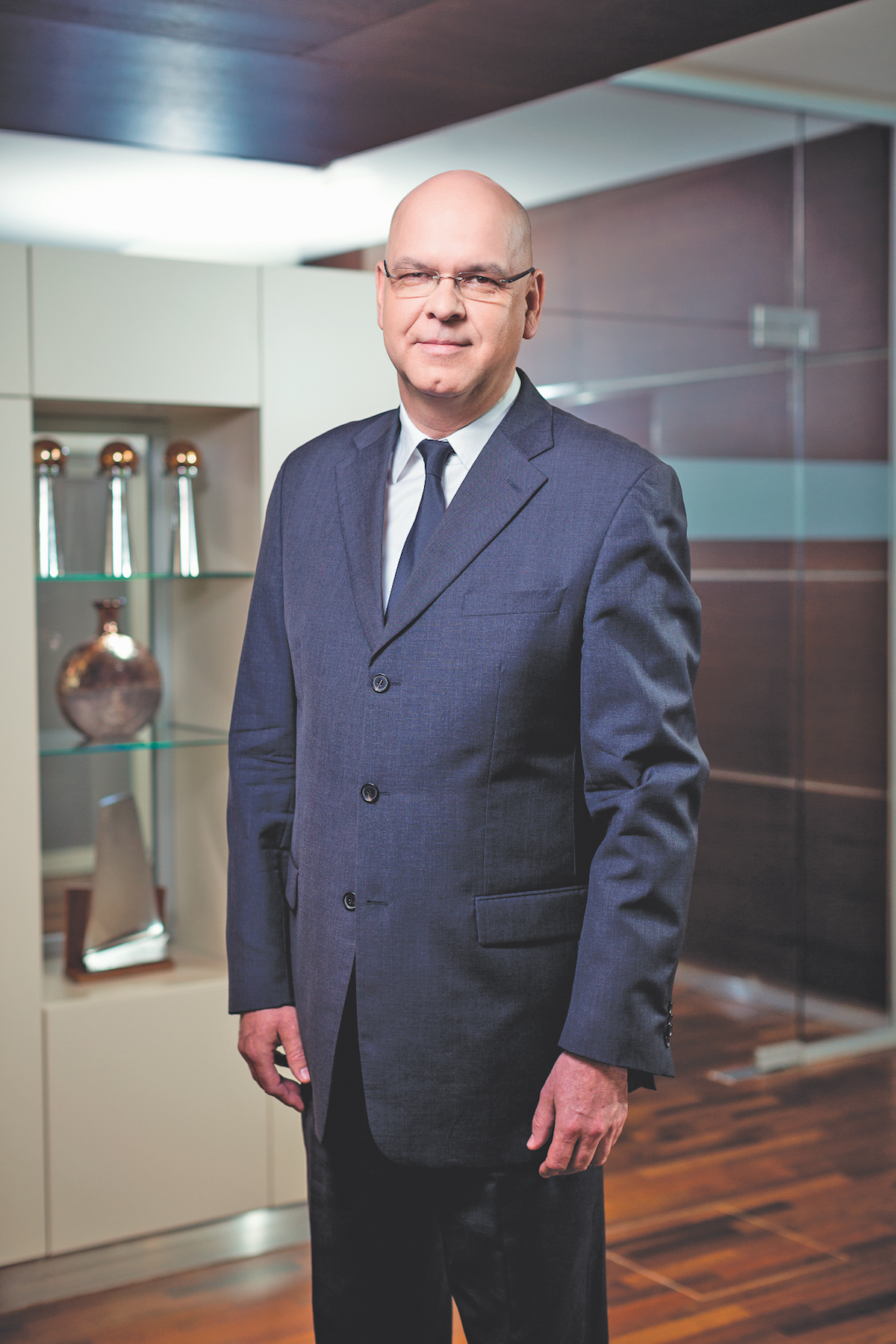Power Hungary: Péter Csiba
The energy sector is riding an express train to change, according to Péter Csiba, CEO of MVM Group. Fortunately, the group has a strategy in place in preparation for its arrival.
For somebody who has only been working in the energy sector for a decade, Péter Csiba has made an impact. The CEO and Chairman of Hungarian power company MVM Group since mid 2015 is aware that he holds one of the key positions in energy in the country. "It is definitely an honour," he says. After a career that started out in the medical device field and detoured through the property development sector, one day he realised "sales is sales whatever you sell; selling energy is much more interesting."
Overcoming an inevitable transformation
His energy for the industry is as fresh as the day he joined it, first as a country sales director for Atel Energia (now called Alpiq) and later in various executive capacities for the Hungarian operations of GDF Suez (recently renamed Engie).
"The sector is one that I still enjoy very much. It’s under a heavy transition, and it’s completely different to how it was before and will be even more different in the future," he predicts. The momentum, he believes, is irreversible. "There’s no stopping the transformation. Whatever we do will be recorded in history now, one way or the other."
The transformation from being an energy supplier to an ‘energy solutions provider’ — as he labels it — is one that Péter warns no company is immune to. "In the past, energy companies shared a single vision of the future, one where we sold electrons and molecules to our clients, and there was always the demand which pushed the prices up."

It is an idyll that he believes has been truly confined to the history books. "Now it is clear that there are entrants to the market who have no experience in the energy sector, and this has driven changes in consumer expectations," he says. "Today, consumers want cheaper products and are much more aware of their energy consumption. It puts the whole industry under pressure."
The future of energy
His vision of the future is one where "nobody will really care who is supplying the power. Perhaps the only point of difference will be the service behind it" — a world where power companies are solutions providers propelled by innovation "whether demanded by the customer or created with their best interests in mind," he says. "Tomorrow we will need to
sell in a completely different way to today."
In preparation, Péter has been instrumental in devising a new MVM Group strategy that takes into account things like stakeholder management, environmental footprint, and sustainability. "These terms were not important in the past but will be extremely significant in the future," he says.
MVM’s new vision, as outlined in the strategy, is "to be a company that is regionally competitive, future- and customer-oriented, that provides sustainable and secure energy supply and energy services in a responsible manner, while pursuing continuous innovation."
An entire overhaul of the group’s appearance has also been implemented. "It has helped us explain one message which really had never been told before: that MVM is a group, not just a bunch of companies that are looking out for their own individual profits and results," he says.
"MVM is a group, not just a bunch of companies that are looking out for their own individual profits and results."
Already focusing on green energy production — "our biggest production facility is a nuclear one with zero carbon emissions," Péter says — late last year it introduced the MVM Edison Light Up! innovation and start-up competition in partnership with IBM. "The support of research and development is part of our new strategy," he says. "The competition is designed to encourage energy-efficient solutions and technological innovations which can be incorporated into our daily lives."
A significant drive is also underway to carve out a regional presence for the company. Last year, it opened representative offices in Moscow, Brussels and Bratislava. "We didn’t have any foreign interests. Now we have." Talks are well underway to acquire interests in former Yugoslavia, Slovakia and Romania.
"We do believe that we have one significant advantage: that we know the region. And, I’m telling you from experience, this region looks completely different from Tallinn, Berlin or Hungary. What looks like a risk from there, we know from here is manageable, and vice versa. This gives us the ability to become a regionally important, even leading, player."